THERAPY RIDING CENTER EXPANDING IN NORTH NAPLES by Jeff Lytle
Throughout history, real or imagined, horses have enjoyed a special place —some had wings, eight legs and seven heads. They have been lionized as war heroes and rewarded with niches in mythology for pulling the sun across the sky. Pegasus earned a constellation for serving Zeus. Now they provide something more down to earth—soothing, character-building therapy for challenged children and adults.
That is the specialty of the non-profit, internationally certified Naples Therapeutic Riding Center in Pine Ridge, which is launching an $8 million fundraising drive. The goal is to expand professionally supervised services for people with Down Syndrome, autism, cerebral palsy, spina bifida, traumatic brain injuries, multiple sclerosis, post-traumatic stress disorder and other emotional, and developmental challenges. The timetable for expansion depends on the pace of fundraising. The center currently has $2 million—comparable to a single year’s operating budget. The need is summed up in their newsletter: 80 people are on a waiting list to begin therapeutic riding—some wait more than a year.
The money will be used to add two adjoining acres, for a campus total of over nine; a third barn, to bring the 14-member horse herd to its zoning limit of 20; more lesson trails and improved housing for crew members who provide 24-hour security and care. Most people who drive by the center daily may think it is easily visible—white stable on the north side of Ridge Drive. Actually, that landmark is separate from the center, which is across the street and features 11 secluded buildings, most of them dark red, such as barns, a conference center available for rentals, and two covered “arenas” for classes six days a week. Classes start with slow walks for horses and their mounts. All sessions are tended by a professional guide and two trained volunteers. One arena features an electric lift for wheelchair-bound students. 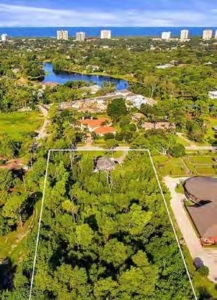
“I give our riders, especially those with significant physical and emotional challenges, a great deal of credit for their courage,” says Martin de St. Pierre, the center’s new CEO and a veteran of the Salvation Army. He touches on a phenomenon that borders on mystical. “Our horses, given their age, temperament and training, understand what is being asked of them and I think understand the riders on their backs may have challenges. The horses respond by being calm and supportive.”
De St. Pierre and his board president Brian McNamara, describe the experience for riders as confidence-building—overcoming anxiety about mounting a large, potentially fearful animal, and enjoying it. Horses are therapeutic for crippled riders as well, he explains, by exercising their legs and helping them sit up straight rather than slouching forward. “Despite their size and power, they are flight animals, preferring to run rather than engage,” he goes on. “We ask them to do many things that are not natural for them, but they have an intuitive sense of understanding about what we need them do, and they deliver with a sense of calm and empathy that is quite remarkable.”
Madison McNally of the STARability Foundation, formerly known as Foundation for the Developmentally Disabled, says the center offers “the best of both worlds”— therapy via neurological stimulation, new motor skills, new vocabulary, self-confidence, and occupational skills such as horse grooming and barn upkeep.
Nancy Dauphinais, COO at David Lawrence Centers for Behavioral Health, says adult and youth patients alike benefit from the horses. She says adults in a residential substance abuse program go to the riding center to work on issues such as communication skills, self-esteem and confidence building. Younger residential patients at David Lawrence, she says, are visited by two miniature horses for bonding exercises including petting, grooming, jogging, navigating obstacle courses and even painting on them. One of the welcome messages for visitors is on the side of a building: “Once a horse has touched your soul they will always be with you.”
Vouching for that is Gary Price, a former Naples City councilman, who went with his autistic son. “Garrett and I used to go every Saturday, about 20 years ago,” Price says. “They had a small barn, a few horses and hearts full of joy! It truly was the highlight of our week. We are forever grateful for the Naples Therapeutic Riding Center.”

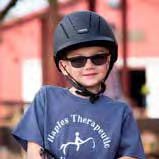
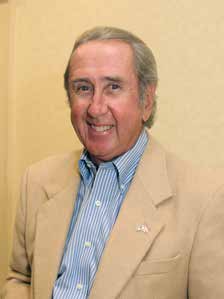
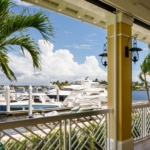
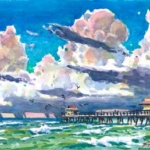
Leave a Reply
Want to join the discussion?Feel free to contribute!